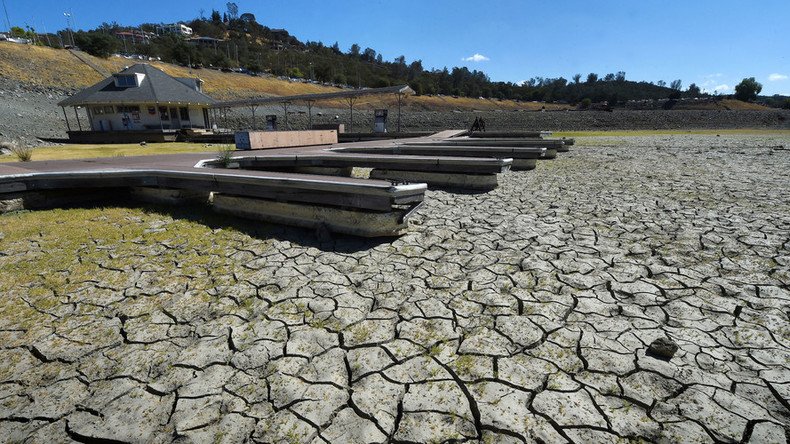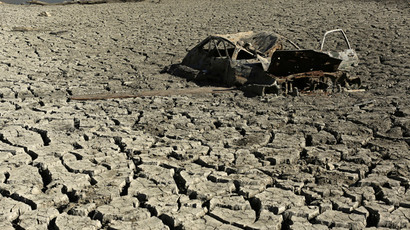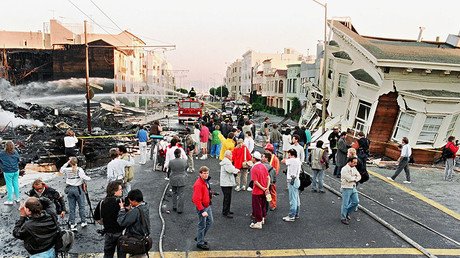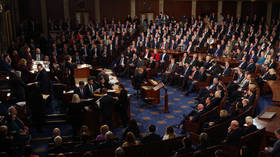Megadrought: Study warns US Southwest ‘virtually certain’ to run bone-dry by 2100

The American Southwest has surely seen some drought, but things may turn sour, or should we say ‘even drier’? Scientists from Cornell University say there’s a high chance that a decades-long ‘megadrought’ is coming by the end of this century.
The scientists, led by atmospheric researcher Toby Ault, have just published their findings in Science Advances journal.
It should be noted that ‘megadrought’ isn’t just a scary-sounding word, it is an existing term: an extreme, bone-dry time that can last for over 35 years.
“In some ways, it's as simple as less rainfall and hotter weather,” Ault says as quoted by Popular Mechanics. “Basically the risk of a megadrought depends critically on the balance of soil moisture at the soil's surface, and that's a tug-of-war between evaporation from hotter weather and the supply of moisture through precipitation.”
The study suggests that the production of greenhouse gases, if carried on at the current rate, could cause the megadrought, and the chances are very high, 70 to 99 percent – which makes it “virtually certain,” in the scientists’ words.
The megadrought would stretch from San Francisco to Boulder, Colorado, and until the Gulf of California.
“We know these megadroughts have happened here before, and we know they can happen again. If we get really aggressive on combating climate change now, we can cut that risk in roughly half,” Ault told Popular Mechanics.
How can scientists predict such a thing?
The researchers are basing their study on tree rings and various other geological records, estimating that the most recent megadrought occurred at the end of the 16th century.
“We think it's linked to the fall of the Puebloan civilization, which built cities into the cliff faces of the four corners region [the intersection of Utah, Colorado, New Mexico and Arizona].”
Researchers assessed the risks, making computer models with different amounts of rainfall, and the risk goes up even with a 30 percent increase in precipitation from today’s number.
“That was particularly eye-opening,” Ault said.
Ault warned that increases in average regional temperatures could be so dramatic – more than 4 degrees Celsius (7.2 degrees Fahrenheit) – that evaporation will win out, hence the risk of a megadrought jumping up to 99 percent.
So what should we do, given the impending risk of disaster?
First of all, we need to “seriously revise our expectations surrounding water and water availability,” scientists believe.
“A lot of our current infrastructure in heavily populated areas like Phoenix, Los Angeles, or San Diego is based around expectations of the past. And those expectations are a lot less relevant to our future,” Ault said.
Secondly, we should get serious about possible outcome of the climate change, decrease our production of greenhouse gases, and thus improve the state of things, researchers concluded.
“The train is leaving the station, but we still have a little time left to catch it,” Ault said.














